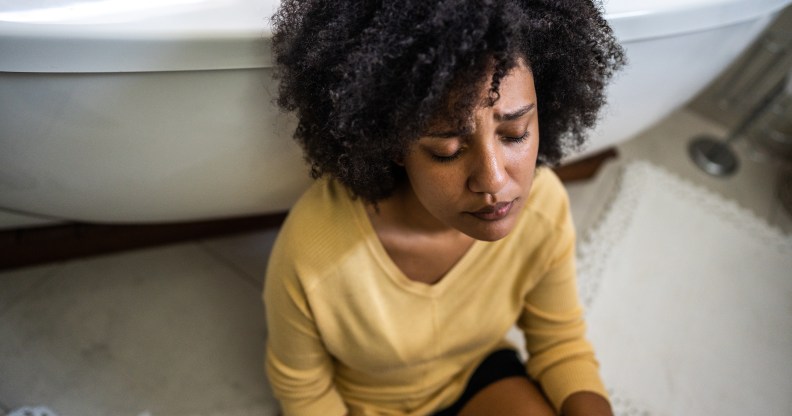Study finds over 75 per cent of LGBTQ+ Australians face abuse from parents or other authority figures

Queer Australians in the community are three times more likely to experience maltreatment than their male, heterosexual counterparts. (Getty)
Over three-quarters of LGBTQ+ people in Australia have experienced abuse or maltreatment from parents or other authority figures, a shocking study has revealed.
The study, which was conducted by academics across the country’s universities, shows that queer Australians in the community are three times more likely to experience maltreatment than their male, heterosexual counterparts. The abuse was mostly reported to be caused by their families.
The leading causes of such treatment reported by queer and gender-diverse people aged 16-24 were emotional abuse and exposure to domestic abuse.
Of those in the same age group who identified as being gender diverse – including trans people – 90.5 per cent reported experiencing maltreatment.
Meanwhile, 77.5% of participants had experienced multiple forms of maltreatment, including emotional, physical or sexual abuse, exposure to domestic violence, or neglect.
The study – which was headed up by Professor Daryl Higgins, director of Australian Catholic University’s Institute of Child Protection Studies, and co-authored by academics both in Australia and overseas – drew on the conclusions of last year’s Australian Child Maltreatment Study (ACMS).
The previous study was based on surveys of 8500 people, making it the largest known representative survey of Australian sexuality. The 2021 census collected data on biological sex, but not on gender or sexual orientation.
“For the first time, we can see the increased likelihood of Australians with diverse identities having experienced any of the five separate forms of child maltreatment and multi-type maltreatment,” Higgins said.
“This significant association may explain some of the health disparities including mental health challenges that have been found for gender and sexuality diverse people.”
The general manager of Queerspace – an LGBTQ+ health and wellbeing support service – Dr Paula Fernandez Arias welcomed the study, drawing on the correlation between child maltreatment and declining mental health.
Fernandez Arias also said such maltreatment is equivalent to “discrimination” against the LGBTQ+ community. “Those experiences do come from systemic forms of very entrenched discrimination that is based on heteronormative and hetero-sexist paradigms,” she said.
“It’s exactly the same kind of driving force behind violence against women. The idea [is] that at the top of the pyramid, there are cisgendered able-bodied white men and that any deviation from that parameter puts you at risk.”
If this story has affected you, call Lifeline on 13 11 14, text 0477 13 11 14, or use the online chat service 24 hours a day, 7 days a week.

